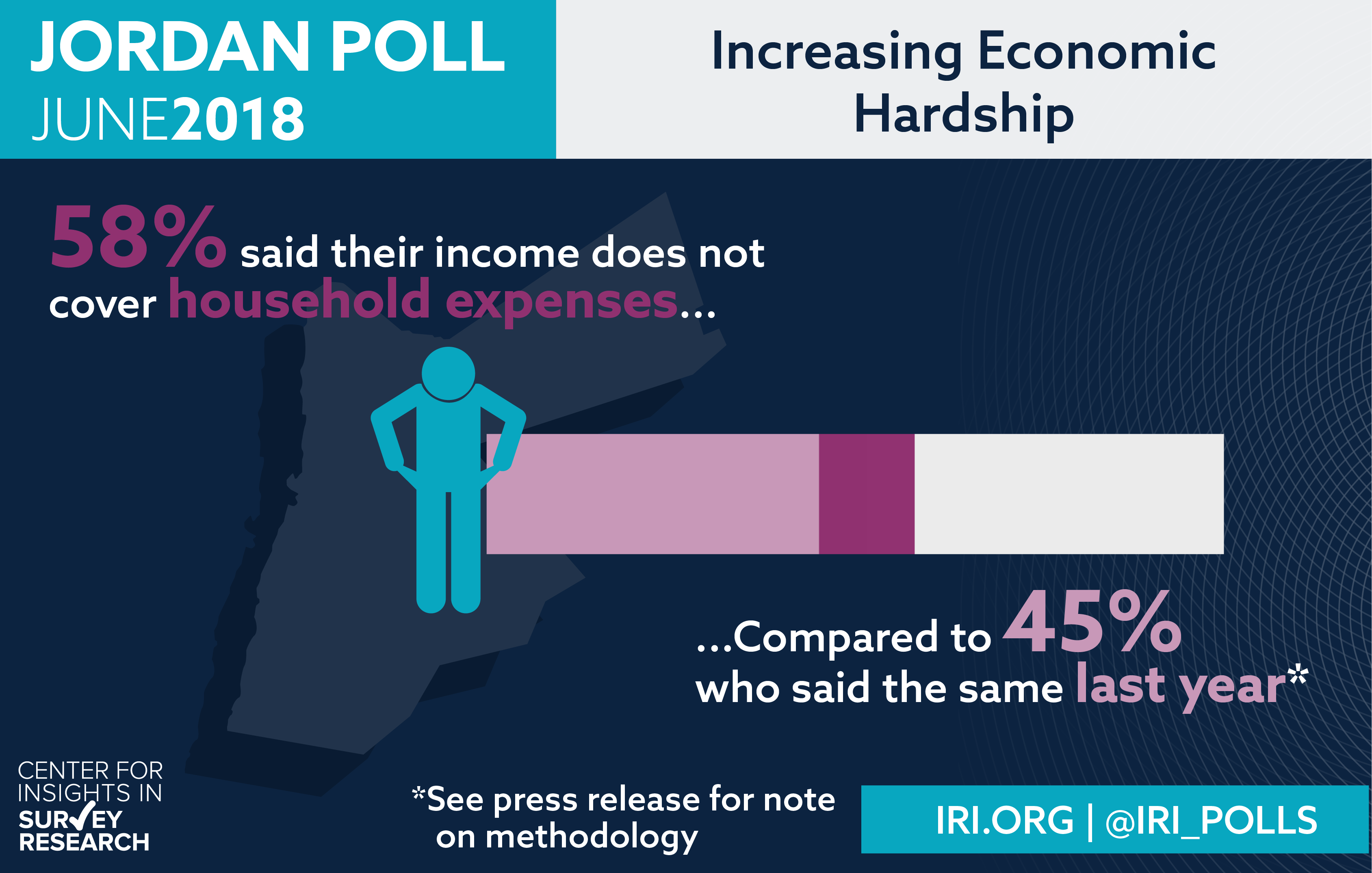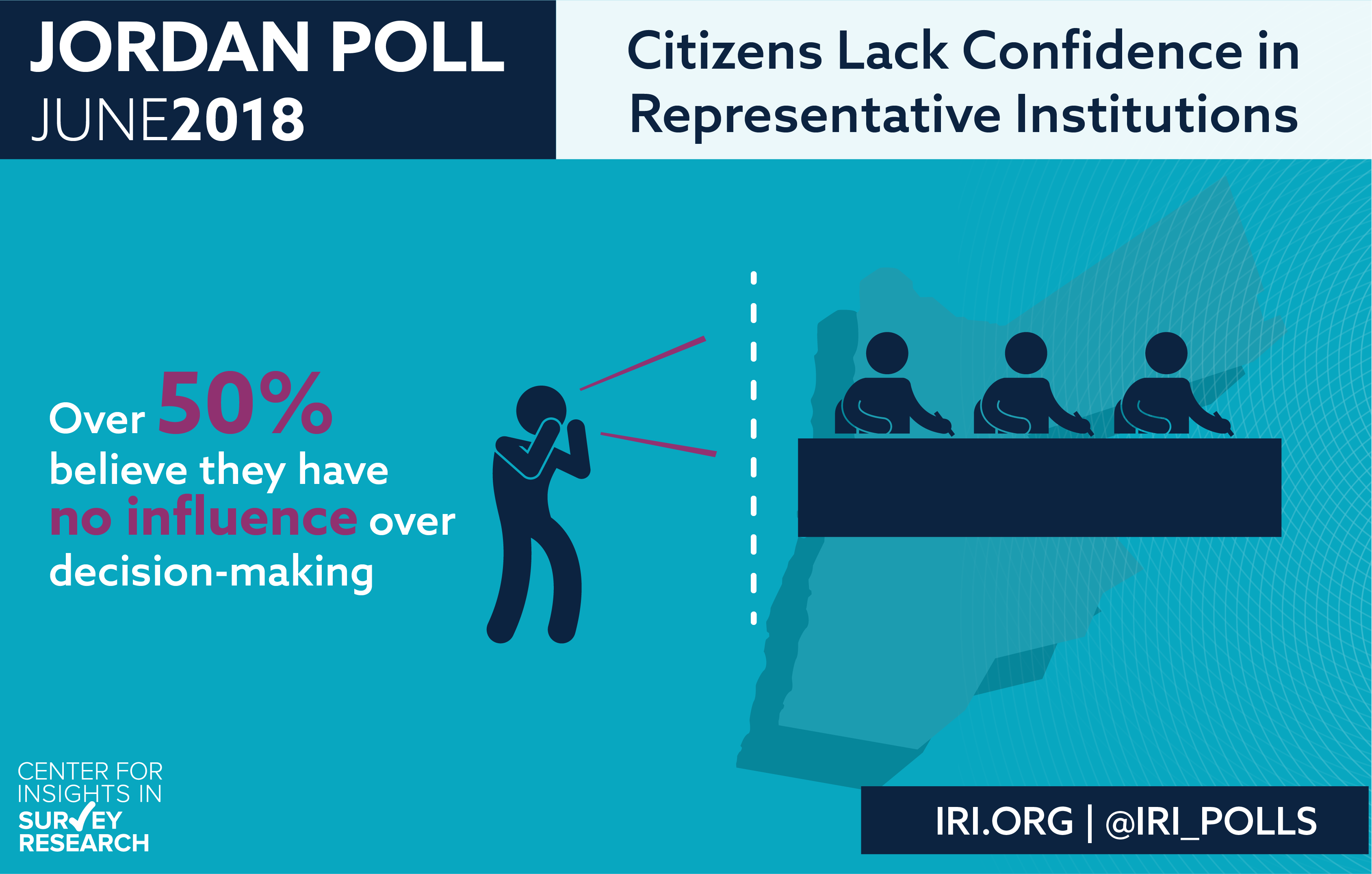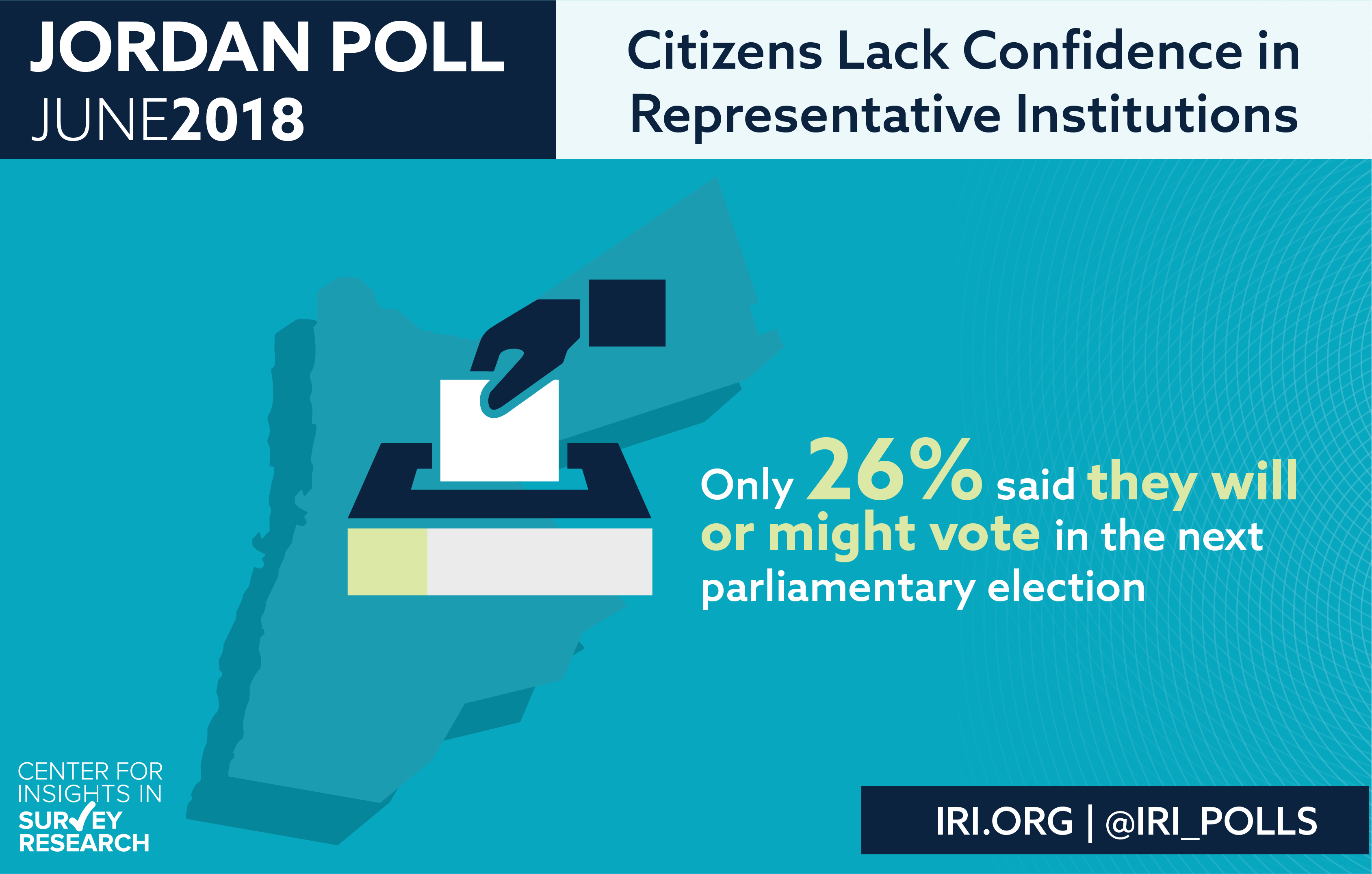Jordan Poll Reveals Low Trust in Government; Increasing Economic Hardship
Amman, Jordan—A new nationwide poll of Jordanians by the International Republican Institute’s (IRI) Center for Insights in Survey Research indicates low trust in government institutions and increasing economic hardship.
“This poll reflects a decrease in public confidence—likely influenced by the protest movement that began just 10 days before the poll was fielded, which brought about the collapse of the Jordanian government,” said Patricia Karam, IRI Regional Director for the Middle East and North Africa. “It is crucial that the new government take steps to address the lack of faith in government institutions, as the country’s democratic and economic development hinges on building a functioning representative government.”
Seventy-two percent of Jordanians do not have confidence in the parliament, and 64 percent do not have confidence in the country’s political parties. Nearly 100 percent of respondents do not think that “the current parliament [has achieved] any accomplishments in the past year for which…it should be commended.” While respondents have low confidence in government institutions, the poll shows high levels of trust in security services: 90 percent have “a large degree” of confidence in the Jordanian Armed Forces.
The poll also reflects increasing levels of dissatisfaction with the economic situation. Fifty-eight percent of respondents report that their income does not cover household expenses and face difficulties making ends meet—a 13-point increase from May 2017.*
“Clearly, there is a direct connection between increasing public frustration with the economy and the loss of confidence in representative institutions and the democratic process,” commented Jake Jones, IRI’s Resident Program Director for Jordan.
Methodology
This survey was conducted on behalf of the Center for Insights in Survey Research by NAMA Strategic Intelligence Solutions. Data was collected between June 20 and June 29, 2018 through face-to-face interviews. The sample consisted of 1,525 Jordanians aged 18 and above, and the margin of error is +/- 2.5 percent for the full sample.
*The 2018 poll featured an improved sampling methodology, which may impact the direct comparability of the 2018 data to prior polls.


Top